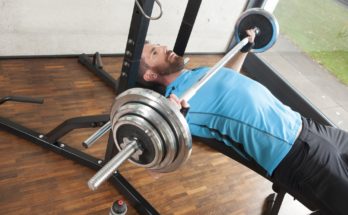Resistance training can do more than enhance muscles. Need some psychological perseverance? Grab a dumbbell Lots of are aware, and profit, of aerobic exercise’s ability to enhance state of mind. Typically, outcomes are discovered within about 20 minutes of beginning workout. Endorphins are launched, tension melts, and the mind is taken part in the minute. In addition to «getting your cardio on,» current meta-analysis shows a strong connection between resistance training and psychological health.
The Studies
The research studies on resistance workout training, as it is employed in the reports, consisted of 2,000 participants. The outcome showed decreased episodes of depression and depressive symptoms, no matter participants’ gender, age, fitness level, and improved physical strength. To put it simply, everybody benefited— not just those who changed into a champion bodybuilder.
These current research studies build on the former research study that determined other brain-related benefits from strength training, consisting of improved memory, sleep quality, and decision-making. (All set to grab a kettlebell yet?).
The direct cause between lifting weights and an improved frame of mind is not clear. Like the effects of aerobic workout, endorphins (feel-good hormones) are released. Always valuable!
Another theory suggests exercise boosts heart rate, perspiration, and respiration much the same as stress and anxiety do. By routinely subjecting the body to this reaction through healthy types of activity, when stress and anxiety and psychological distress occur, you might react with less alarm. Also, some believe an increase in the body’s core temperature level warms the brain stem, which induces relaxation.
Often, anxiety consists of sensations of low self-worth, concern, inability, and rumination of negative thoughts. Weightlifting particularly combats such feelings. It demands careful attention with every representative and set to guarantee appropriate kind and prevent injury. By nature, strength training assists you feel stronger and empowered. Consider it as lifting that heavy cape of depression to reveal your real, well-loved self.
Exercise of all types also helps reduce depression linked to bad body image. Regardless of size or self-perceived imperfections, shaping your physical enjoying a healthier, muscular entity develops a sense of pride and self-regard. This has nothing to do with numbers on a scale.
The Prescription
More research studies are needed to identify the very best exercise routine to help prevent and alleviate anxiety. We can not yet suggest precisely how many representatives, what kind of fitness equipment/weights, and which cardio workouts yield the best outcomes. A well-balanced exercise is known to be best for physical health. Likely, the same holds for the mind.
As for period, consistency is important for long-term assistance versus anxiety and anxiety. Battle emotional distress daily with exercise. On days it is hard to get out of bed, accept that workout might be restricted to walking around your lawn. Do what you can.
Most of the exercise’s protective impact versus anxiety takes place after the first one- to two-hour workouts each week. Those preliminary weekly exercises serve as insurance coverage for a much better personality all week long.
Do not get rid of other forms of treatment for anxiety, anxiety, and other health concerns. This consists of using medication and treatment. Strength training, and exercise, in general, help myriad health issues. However, often, we need additional assistance before complementing the journey to enhanced mental health with fitness. Be the brave one who looks for aid of all kinds. You are strong enough to grow stronger.




